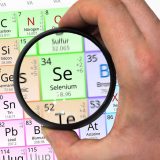Well known for following a Thanksgiving or other holiday meal, food coma can sap the energy out of just about anyone. Known technically as postprandial somnolence, some people appear to be more susceptible to this phenomena than others. Based on human physiology, clinical experience and scientific studies, experts offer several explanations for why some people experience extreme fatigue after a large meal. Regardless of the actual cause, a small collection of tips can help prevent you from slipping into a food coma.
Believed to be responsible for the characteristic energetic crash that can follow an eating binge, these four physiological explanations are the most viable:
- Nervous System Shift – In response to the arrival of food in the stomach and small intestine, the activity of the parasympathetic nervous system increases while the activity of the sympathetic nervous system decreases. This shift in the nervous system balance towards the parasympathetic system results in a state of low energy and a desire to be at rest. Physiologically, this is the opposite of the fight-or-flight state induced by the sympathetic nervous system in times of extreme stress or fear. As a general rule, the larger the meal, the greater the body will shift toward the parasympathetic system.
- Glycemic Index – When foods with a high glycemic index are consumed, glucose is absorbed rapidly from the gastrointestinal tract into the bloodstream. High glycemic foods prompt rapid blood sugar spikes, which are subsequently followed by equally dramatic plummets. These plummets always cause some degree of fatigue. Some popular foods with a high glycemic index include white bread, pasta, rice and baked goods.
- Tryptophan – The uptake of the amino acid tryptophan by the brain can readily lead to fatigue. In the brain, tryptophan is converted to serotonin and melatonin. These two chemicals typically result in sleepiness. With the intake of high glycemic foods, insulin levels rise in an attempt to maintain blood glucose levels. Insulin stimulates the uptake of many amino acids (valine, leucine, tyrosine) but it spares tryptophan. By changing the ratio of amino acids in the blood, this insulin rush fosters a greater concentration of tryptophan – thus fostering fatigue. While turkey’s abundance of tryptophan is often accused of Thanksgiving’s food coma, experts agree that the high glycemic carbohydrates consumed in this festive meal are more likely the cause of postprandial somnolence.
- Cholecystokinin – One of the hormones released during digestion is cholecystokinin. Commonly referred to as CCK, this hormone helps make you feel full, but also activates the areas in the brain associated with sleep. Eating past the point of being satisfactorily full releases excessive amounts of CCK. Thus, this feedback mechanism communicating satiety could also contribute to feelings of sleepiness.
The four described physiological events believed to initiate a food coma can be prevented. The following tips can make a dramatic impact on how you feel after eating:
- Instead of a large feast, eat small frequent meals. This helps prevent a shift towards the parasympathetic nervous system by maintaining nervous system balance.
- To prevent blood sugar surges, stay away from foods with a high glycemic index – typically white carbohydrates. Instead, favor produce, whole grains and lean sources of protein.
- Avoid overeating by consuming food slowly. When eating slowly, it is easier to detect when hunger is satisfied. This enables people to stop eating before they are overfull and producing lots of CCK.
- Because research shows that cinnamon keeps blood sugar levels lower after eating, consider adding cinnamon to savory dishes. As reported in the American Journal of Clinical Nutrition, cinnamon has been shown to cause a person’s stomach to empty more slowly, thus delaying the increase in blood sugar following a meal.
Whether postprandial somnolence is a result of a shift in the nervous system, a blood sugar spike, a high concentration of tryptophan, too much CCK or all of the above combined, you don’t need to seek a mattress after every meal. By being more conscious of the pace, ingredients and size of the portions you eat, you can prevent succumbing to a food coma.




